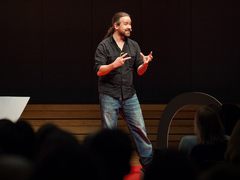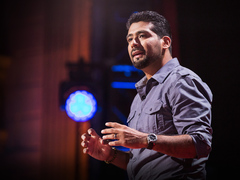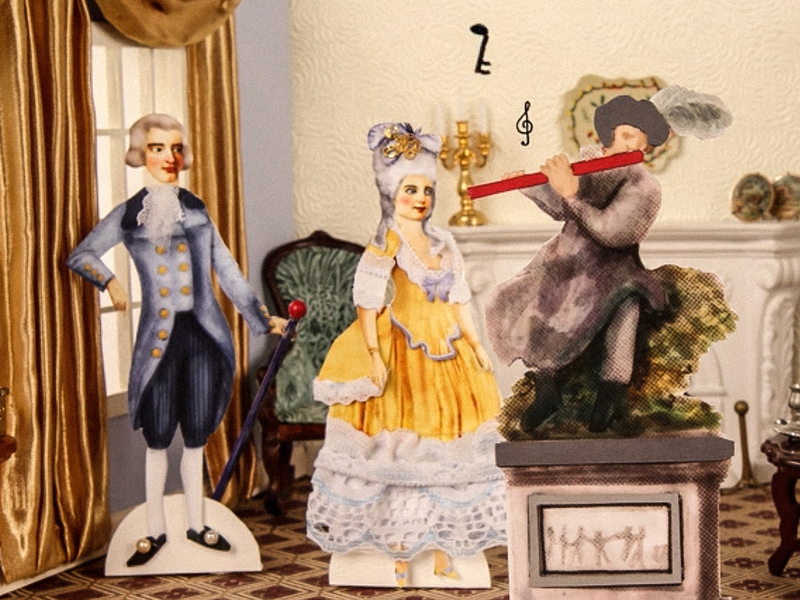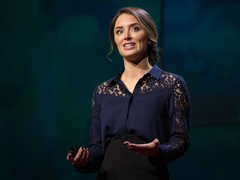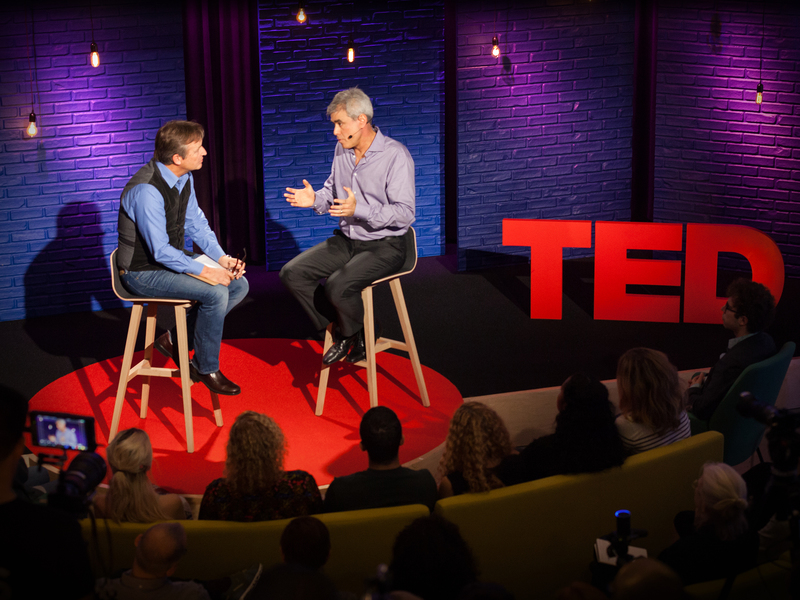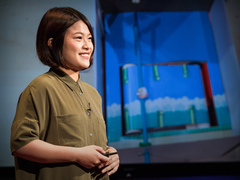| The talk that changed my life
By Pico Iyer Thirty-four years of working in the mass media have taught me one thing: never to trust the mass media. Not because of any hidden agenda or conspiracy but simply because the media is in the business of giving us what we want. And what we seem to want these days is wild gossip, distraction and entertainment 'round the clock. The only way to follow what's going on in the world is to never pick up a newspaper or turn on the TV, but merely to try to observe it on the human level first-hand, unmediated by screens.
So you're probably not surprised that I was liberated, blown open, when I heard Ricardo Semler's TED Talk, "How to run a company with (almost) no rules." Really, its title should be, "How to live with the exactly right, emancipating rules." The minute the Brazilian CEO walks onto the red circle and says, as easily as hello, "On Mondays and Thursdays I learn how to die," I know I'm in the presence of a line of thinking that can change my life.
Mr. Semler's not young, and melanoma runs in his family, so he has reason to think about the end, perhaps. But as he begins to unfold his vision of how to transform a company -- by encouraging workers to come and go as they please -- and then extends that vision to our schools, I realize that this highly practical, successful man of the very real world is simply challenging us to think about what's difficult, and therefore necessary.
I haven't occupied a company setting since 1986; nothing could interest me less than profit curves or office management. But the grace of Mr. Semler's talk is that he's speaking about the "graph" of existence more than of spreadsheets; about making a life as much as making a living. And there's something invigorating about seeing this wisdom brought to us not by monk or formal philosopher or saint, but by elegant company director in black jacket. Leading a good and considered life, he shows us, need not be incompatible with laboring in an office block.
As those of us lucky enough to listen to the talk live, in a tent on the beach in Rio, heard Ricardo Semler at the end of a long day, after maybe sixty talks over the previous three days, many were stunned by single lines. He wasn't asking himself, "What do I want to be remembered for?" but "Why do I want to be remembered at all?" He was reminding us that we're always ready to turn to our work-related e-mails on Sunday evening yet slow to go to the movies on Monday afternoon. He kept taking us back to how "we measure ourselves, as humans," knowing that such a measure has to do with something deeper than the rocket fuel propellant systems, income-tax preparations and M.I.T. classes by which he's long gained his livelihood.
It's the same message that the Buddha and Marcus Aurelius and Montaigne pass along, because Mr. Semler goes to cemeteries even on his birthday, as they might have done, thinking about what he'd do if he had only a few months to live. But he brings such ideas to the boardroom, the bedroom and the classroom, exactly the places where we're most inclined to overlook them.
And nothing could be more urgent in an age when we spend less and less time addressing what's lasting and what's real. We're always being told, rightly, to tend to our forests and to clean up our air; but we're less often reminded to try to protect the wild spaces inside our imaginations (where the future will get made) or to clean up the skies in our souls (where toxins can be more poisonous than any external pollution). Even as we're so proud of filling our bodies with locally sourced, farm-to-table, organic food, we fill our minds with junk.
The world is as full of beauty and wisdom and hope as ever; I've seen that everywhere from Burma to New York City these past few months (and, in the past few weeks, in Bhutan and Alberta and Varanasi and rural Japan). Humans are no worse than we've ever been, even if we're not necessarily any better. And the only way we can imagine a better world is by going within. The only way we can make it happen is by bringing that imagining out into the world. Ricardo Semler inspires me as only a wise man can, and he gives me hope about translating his bracing wisdom into real life as only an accomplished master of the corporate sphere can do. | 



